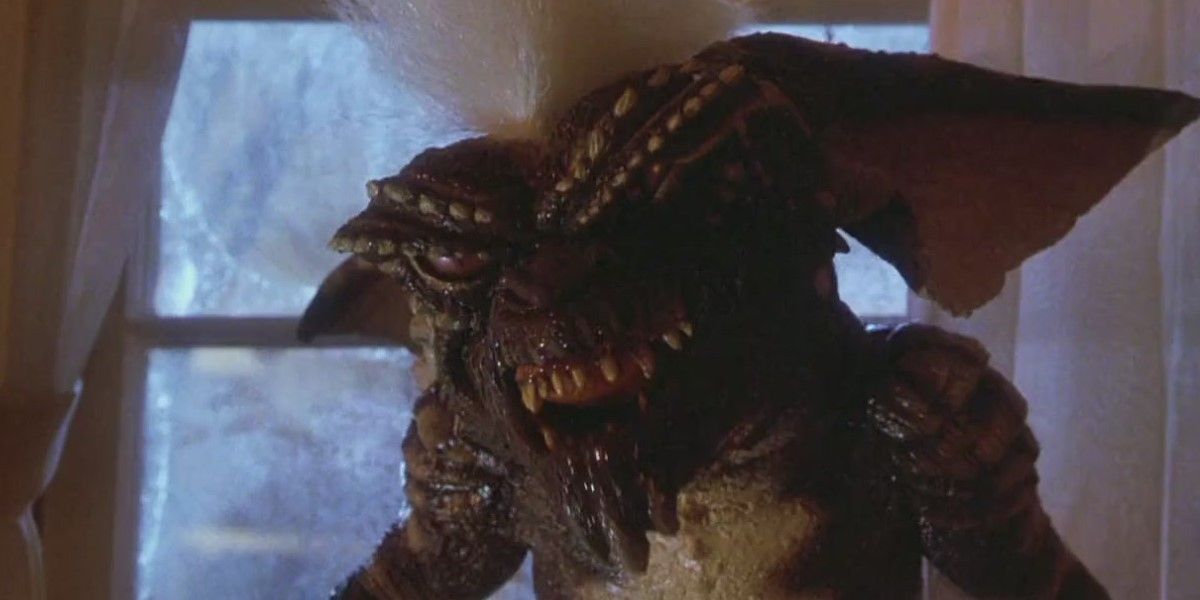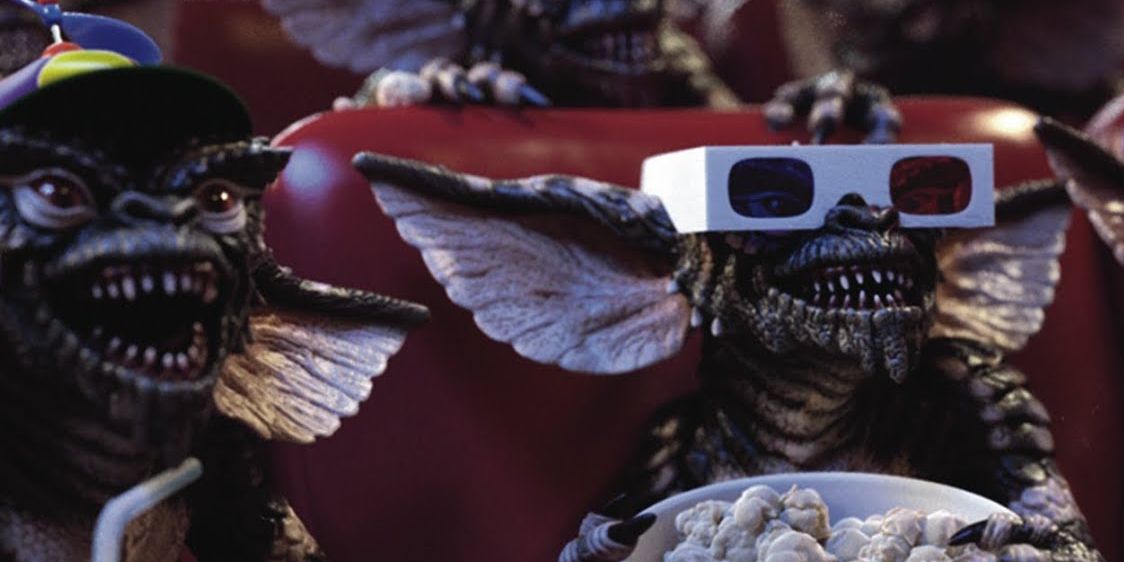Feed After Midnight and Get Wet
Joe Dante's Gremlins became an '80s classic based on its simple hooks, its subversive messaging, and the way it seemed to tap into people's countless anxieties about Christmastime. Part of that included the "three rules" surrounding its title creatures, which were easy to remember and yet – to the film's protagonists at least – frustratingly hard to follow. Don't expose them to sunlight, don't get them wet and don't feed them after midnight. Gremlins presented them as a fairy tale would, with little explanation beyond a problematic origin in an Asian curio shop, and the indulgence of an audience who didn't need the particulars of the creature's background to enjoy the story.
That has, however, left an odd logic hole in the three rules. While sunlight and water could be feasibly explained away through the gremlins' physiology, the midnight admonition makes no sense. Though compelling and carrying the right sense of supernatural foreboding, it simply can't be applied in anything resembling a practical way.
Why Gremlins Can't Eat After Midnight

Gremlins never fully explains the reasons for the rules, but rather leaves it for its protagonists to discover the hard way. Since the creatures' origins aren't explained, it could be that the practical consequences of breaking the rules have simply been forgotten. The novelization of the movie by George Gipe goes into somewhat greater detail, positing them as an alien genetic experiment gone wrong. Gizmo, the movie's lone heroic "Mogwai" is the only version in the story who turned out as intended, with the rest psychologically flawed and ultimately extremely dangerous.
That plays out when the midnight rule is broken, as well as demonstrating the dire ramifications of doing so. The results trigger a transformation whereby the cuddly Mogwai is encased in a cocoon and emerges as a scaly green gremlin. Its ostensible benevolences is gone and it seeks only to create chaos and mayhem, often with violent results. In the movie, the "flawed" Mogwai created by spilling water on Gizmo get around this rule by sabotaging the clock in Billy Peltzer's room so the human doesn't realize it's past 12. Gizmo, who has no intention of ever becoming a gremlin, refuses the food and remains his benevolent self.
Why Gremlins' Midnight Rule Makes No Sense

Thematically, the use of the word "midnight" is extremely potent. It speaks to monsters and dark magic, as well as things that stay hidden out of sight. It also gives the gremlins themselves a quiet sense of power, and helps convey the idea that they don't necessarily follow scientific rules. It also taps into the folktale roots of the three rules, and helps Gremlins convey one of its big themes of an irresponsible middle America that can't be trusted with delicate things.
All of that does a great deal to help Gremlins as a story, but still creates a seemingly impassable logistical issue. How is midnight measured? Does it account for clocks that are too fast or too slow? Does it refer to Greenwich Mean Time, or local time? The rule might be metaphorical, meaning not to feed them before dawn, but that also makes little sense considering that dawn arrives at different times depending upon one's location. Without more concrete details, it's impossible for the rule to be applicable. In so doing, it renders one of the movie's key points untenable.
Gremlins 2: The New Batch made mild sport of the issue, as it did for a number of other points about the original. And at the end of the day, the paradox doesn't affect the story. Indeed, its nebulous nature helps increase the sense that the adorable Mogwai are more dangerous than they seem. But it still sets up an unsolvable logistical issue, and while the movie's quality earns it an easy mulligan on the matter, it can be very difficult to simply ignore.
marshallahmand1991.blogspot.com
Source: https://www.cbr.com/why-gremlins-after-midnight-eating-rule-makes-no-sense/
0 Response to "Feed After Midnight and Get Wet"
Post a Comment